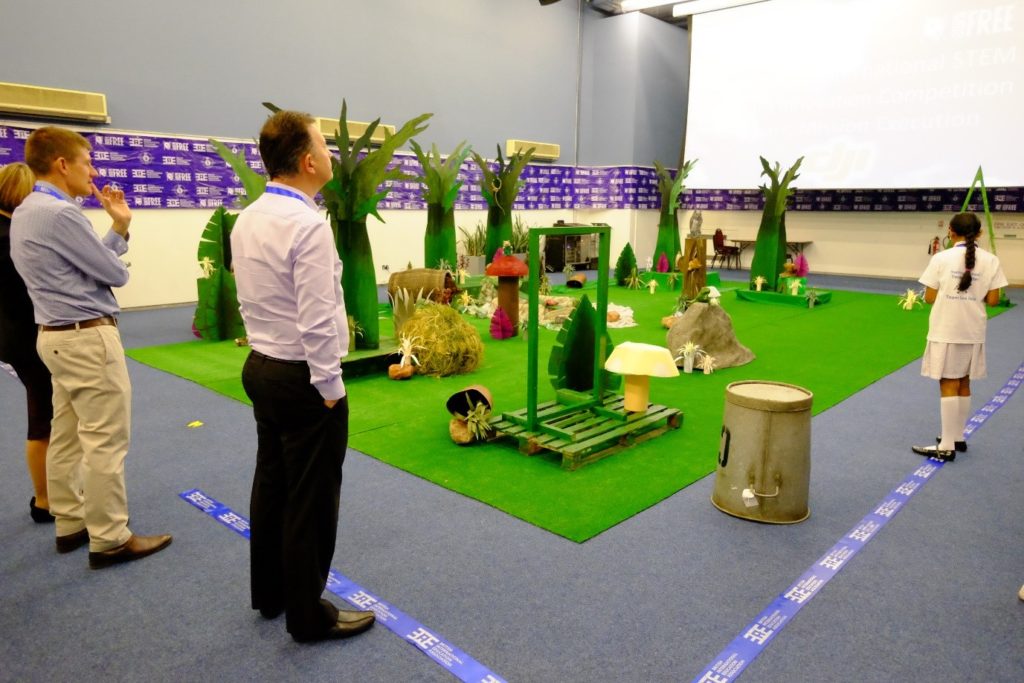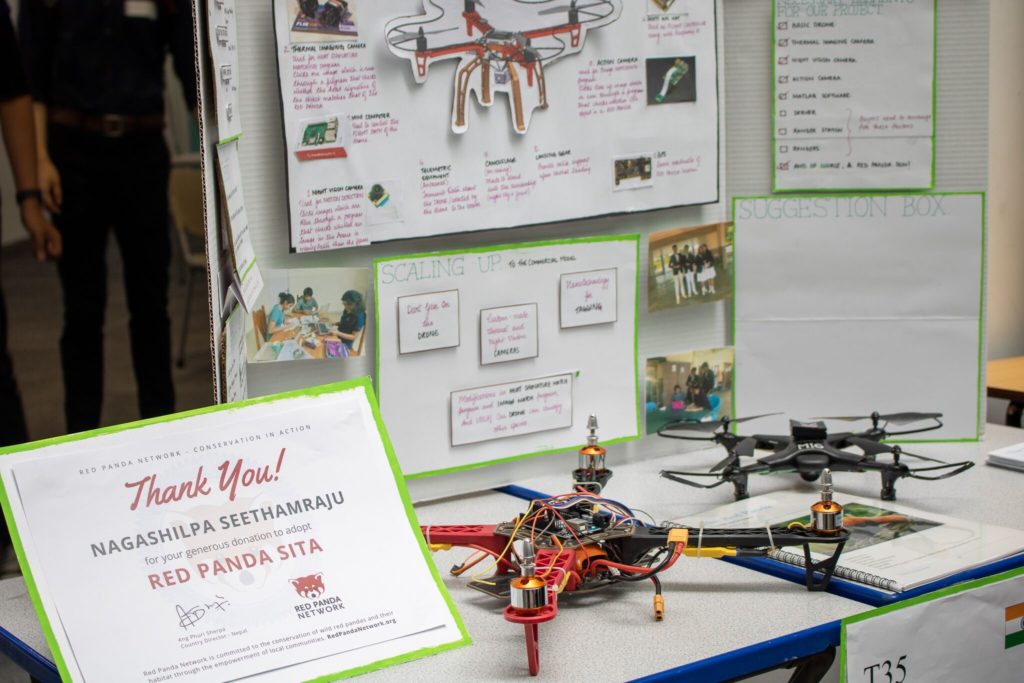International STEM Competition help children to learn new life skills and social responsibility

UK school children scooped some of the top awards at the finals of a major international STEM competition in London earlier this month, where they showcased their ideas on how they would use drones to conserve endangered species.
Children from Kent College in Canterbury were awarded the ‘Outstanding Achievement’ Award in the 12-14 year old age category with their plan to save the rhino while a home educated team from Ashford in Kent won the same award for the 15-17 year old category with their scheme to save the sea turtle.
Meanwhile two London teams – from Alpha Prep School in Harrow (age 9-11 category) and from the Henrietta Barnett School in North London (age 15-17 category) – were overall championship runners-up, with their ideas to protect sea turtles and the snow leopard respectively.
The overall grand prize of £5000 was won by the United World College in Mostar, Bosnia, for their impressive strategy to protect the endangered vultures of Bosnia and Herzegovina, a task made even harder by the estimated 80,000 landmines in 8500 locations around Bosnia and Herzegovina left over from the Balkan Wars.
David Busley, 17, from the Bosnian team said:
“Vultures may have an image problem, but they are crucial to our country’s ecosystem. They are endangered, yet their plight often barely registers with many Bosnians as they are out of sight and out of mind.
“Drones offer the perfect way to reach them safely in their natural habitat, and our hope is that by monitoring and tracking their numbers properly, we can encourage the government to take action to help conserve these vital animals.”
Other UK winners were Coleraine Grammar School from Northern Ireland who won the award for the ‘Best Report’ in the age 12-14 category with their plan to monitor and protect the basking shark in Northern Irish waters; St Margaret’s School in Bushey and Queen Elizabeth’s School in Barnet who won the awards for ‘Best Oral Presentation’ in the age 9-11 and age 15-17 categories respectively for their plans to save the Darwin Fox and the Black Rhino.
Best Flying Award for showing how their drones would operate to save snow leopards and African elephants respectively went to Alpha Prep School in Harrow in the age 9-11 category and to Cardiff Sixth Form in the age 15-17 category.
Sheffield Park Academy were awarded the Best Creativity Award in the age 12-14 category for their ideas on how to save the Tasmanian Devils while Portslade Academy in Brighton won the Best Display Award in the age 12-14 category for showing how they planned to protect the crocodile and were overall second runners-up in their age group.
Finally ‘Best Effort’ awards went to Alpha Prep School in Harrow for their ideas on protecting the elephant (age 9-11 category) and to Earlscliffe College in Folkestone for their innovative scheme to monitor seagull numbers (age 15-17 category).
They all won a trophy and medals for their school.
More than 25 teams from countries including China, the USA, India, Pakistan, Bosnia and Herzegovina, Poland and the UK converged on the Royal Air Force Museum to contest the International STEM Youth Innovation Competition.
The competition was organised by the British International Education Association (BIEA), which champions British education ideals around the world, and backed by the Born Free Foundation, the competition aims to fire the imagination – and test the creative and technical expertise – of young science students with the theme of ‘Fighting Extinction via Drone Technology’.
Finalists in the three age groups – 9-11, 12-14 and 15-17 – from 18 countries were shortlisted for the grand final. Each school was given a budget of just £100 to build a drone for their entry, ensuring a level playing field. They battled it out in a day of tough competition, during which saw them each fly their drone and explain how they would use the technology to tackle species extinction.
Judges headed by the Chief Scientist of the Born Free Foundation, Professor Claudio Silleron, Dr Shaun Fitzgerald of The Royal Institution and STEM Chairman of the BIEA David Hanson, also included drone expert Stephen Prior from Southampton University, Education Innovations Manager for the British Science Association Jane Dowden and Competition Manager Amelia Perry from Engineering UK.
The STEM competition runs each year with a different theme. In 2018, schools were challenged to create a drone for a rescue situation. Registrations are already open for the 2020 competition at www.bieacompetition.org.uk.

David Hanson, STEM Chairman of the BIEA, said:
“How these groups of young people planned and executed their impressive strategies to protect endangered species was hugely impressive and we were all overawed by the talent and enthusiasm on display.
“As a not-for-profit education organisation working around the globe, the BIEA champions British education, STEM and innovation. Our competition brings all those themes together, and aims to inspire young people to use tech for good – and to fire young creative and technological minds around the world.”
Professor Claudio Sillero, Chief Scientist at the Born Free Foundation said:
“What a wonderful day! I was privileged to present the STEM Youth Innovation Competition grand prize to the United World College team from Mostar. Smart modification of their drone for efficient battery recharging and data offload delivered an inexpensive device to remotely monitor threatened vultures in the ragged mountains of Serbia-Herzegovina.
“Born Free sees a promissory future for greater engagement of STEM professionals to devise smart conservation solutions. Born Free invests in a better future for both people and wildlife. The STEM Youth Innovation Competition provides a great vehicle for that aspiration. By addressing specific technical challenges to protect wildlife, – as illustrated by some of the cool uses these youngsters have found for their drones, we foster their interest in technology while developing innovative ways of valuing and protecting wildlife.”




